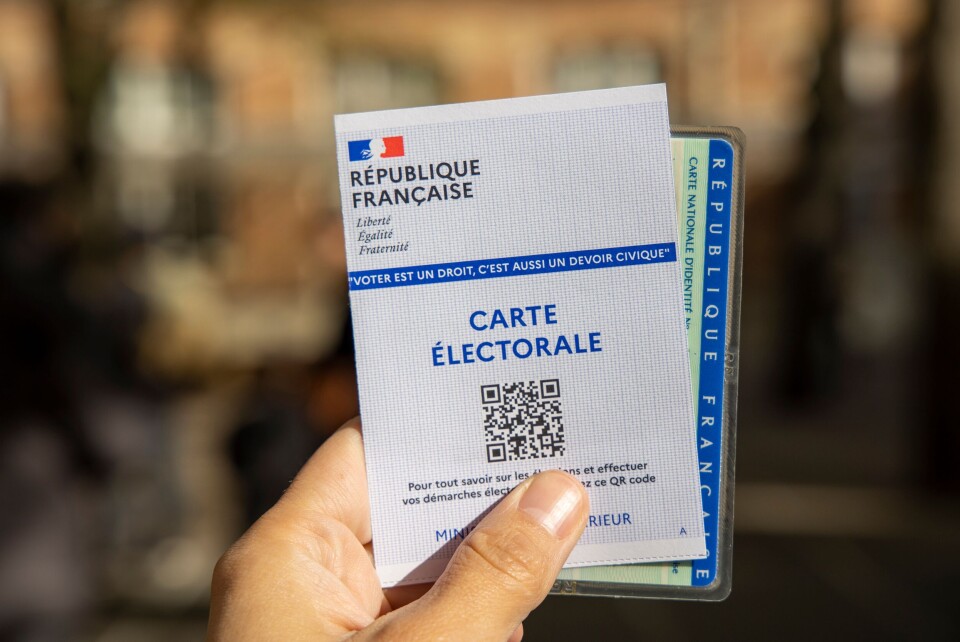-
Mysterious boom rattles residents in south-west France
Local community turns to social media for answers
-
France tightens reimbursement rules for flight delays or cancellations
New measures include mandatory mediation and new claim procedures
-
What snow conditions look like for skiers across French Alps and Pyrenees
Ski resorts are expected to get busier as school holidays begin this weekend
How fake news posts tried to skew French election result
False information has ranged from conspiracy theories about a new QR code on voters’ cards to claims that thousands of gilets jaunes were banned from voting

Conspiracy theories and false information have dogged this year’s French presidential election. We recap some of the claims that have been debunked.
QR Codes on electors’ cards
Cartes électorales – electors’ cards – were sent out, as usual, before the election containing useful information such as the nearest polling station. People were invited to present them along with their ID when they go to vote although this is not obligatory. In smaller communes it is possible to present them alone without other ID.
However, some social media posts claimed the QR codes that appeared on the front of the cards this year were going to be used to make sure that votes against Emmanuel Macron were not counted, or to discount votes of people who are not vaccinated.
In fact the code simply directs people that scan it to official information on the election at elections.interieur.gouv.fr where they could check their registration status or carry out procedures such as asking for a proxy vote.
60 million refugees
According to what appeared to be a tweet from the BBC, that was widely shared especially via Telegram, Emmanuel Macron had warned that Europe would have to take up to 60 million refugees from Africa and the Middle East in the next 20 years, linked to effects of sanctions against Russia. Some posters even said it was one of his campaign promises.
It's day 53 of war in Ukraine.
— Shayan Sardarizadeh (@Shayan86) April 17, 2022
A fake BBC News tweet falesly quoting President Macron as saying sanctions against Russia will lead to 60 million refugees in Europe is being shared. Mr Macron has not said such a thing and BBC News never tweeted that.
Spotted by @RespectIsVital pic.twitter.com/AliRnv9LMc
However Mr Macron’s electoral team denied he had ever said this. The BBC also denied it made the tweet. In fact the post was faked from one with the less controversial headline:
French elections: Macron targets Le Pen as run-off campaign begins https://t.co/V14oBOhOrn
— BBC News (World) (@BBCWorld) April 11, 2022
Voting machines
As in the 2020 American elections when similar claims were made by Trump supporters, claims have circulated, notably on Facebook accounts supporting the far-right candidates, that voting machines are to be used, and manipulated, to falsify the count in Mr Macron’s favour.
This was said to be in a partnership with American firm Dominion which was alleged to have made an agreement with the government to supply machines and use them to discount votes against Mr Macron’s opponents. The same firm was at the centre of accusations by supporters of Mr Trump after several American states made use of it.
There is no contract between Dominion and the French government.
A small number of French communes – 63 – do have authorisation to use electronic voting machines to collect votes but the only model used is made by a Dutch firm. The communes concerned were all equipped with them before 2008 and new authorisations are no longer being given.
A low turnout would make the election invalid
Former presidential candidate Nicolas Dupont-Aignan was cited as the source of information that the whole election could be invalid if the turnout was low.
In fact, his actual quote to BFMTV was that the election would be “invalid in people’s hearts” in this case.
The president is elected by majority vote no matter how low the turnout.
Terror suspect called on voters to block Le Pen
Salah Abdeslam, being tried for involvement with the 2015 Paris terror attacks, was said in a post originating from an anti-vax and pro-Russia account to have spoken out “in tears” at his trial, to “tell voters not to commit an irreparable harm by voting for Le Pen”.
The claim was widely refuted, including by Abdeslam’s own lawyers.
Thousands of gilets jaunes faced vote ban
A gilet jaune activist, Gregory Pasqueille, was shown in a video saying that some 22,552 gilets jaunes supporters had been banned by law from voting.
In fact official figures record some 3,200 convictions in relation to gilets jaunes protests in the period when they were most active, from November 2018 to November 2019, and the addition of a voting ban as an additional punishment is rare, lawyers say.
One lawyer who has represented many of those involved in the movement told French media none of those he had defended had received this penalty.
Previous articles
French election live first results: Macron 58.2%, Le Pen 41.8%
























